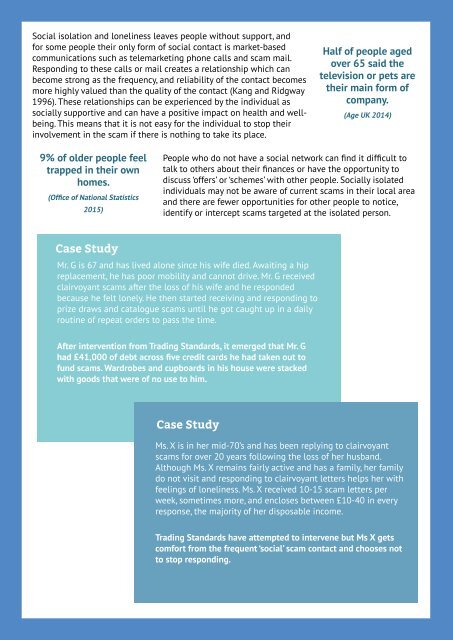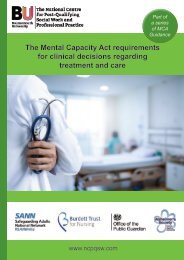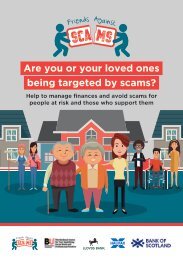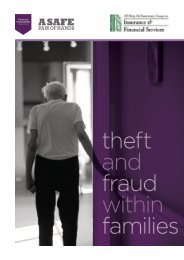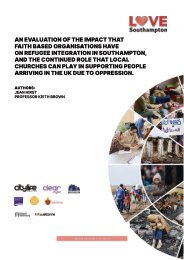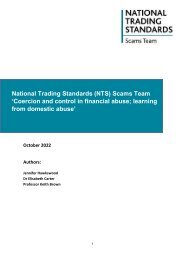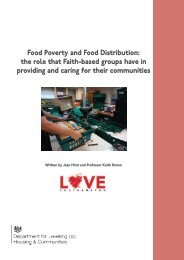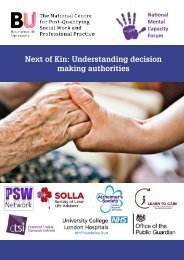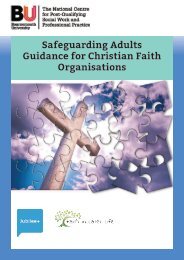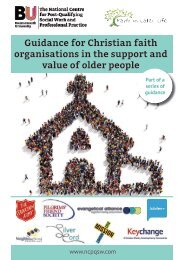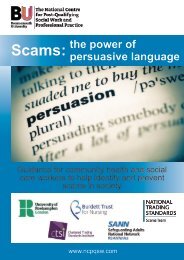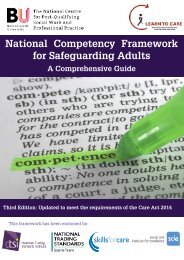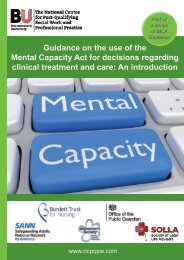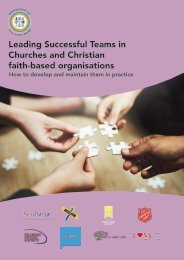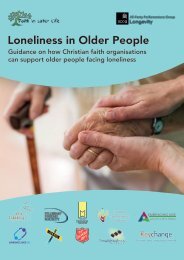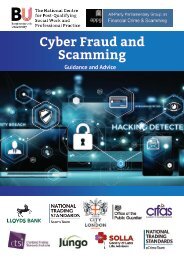Financial Scamming and Fraud
Financial scamming and its impact have been receiving a higher public profile in recent months, yet though it is recognised as a growing problem, there is a lack of clear research and evidence into the scale of the problem, its causes and the impact on the public.
Financial scamming and its impact have been receiving a higher
public profile in recent months, yet though it is recognised as a
growing problem, there is a lack of clear research and evidence
into the scale of the problem, its causes and the impact on the
public.
Create successful ePaper yourself
Turn your PDF publications into a flip-book with our unique Google optimized e-Paper software.
Social isolation <strong>and</strong> loneliness leaves people without support, <strong>and</strong><br />
for some people their only form of social contact is market-based<br />
communications such as telemarketing phone calls <strong>and</strong> scam mail.<br />
Responding to these calls or mail creates a relationship which can<br />
become strong as the frequency, <strong>and</strong> reliability of the contact becomes<br />
more highly valued than the quality of the contact (Kang <strong>and</strong> Ridgway<br />
1996). These relationships can be experienced by the individual as<br />
socially supportive <strong>and</strong> can have a positive impact on health <strong>and</strong> wellbeing.<br />
This means that it is not easy for the individual to stop their<br />
involvement in the scam if there is nothing to take its place.<br />
Half of people aged<br />
over 65 said the<br />
television or pets are<br />
their main form of<br />
company.<br />
(Age UK 2014)<br />
9% of older people feel<br />
trapped in their own<br />
homes.<br />
(Office of National Statistics<br />
2015)<br />
People who do not have a social network can find it difficult to<br />
talk to others about their finances or have the opportunity to<br />
discuss ‘offers’ or ‘schemes’ with other people. Socially isolated<br />
individuals may not be aware of current scams in their local area<br />
<strong>and</strong> there are fewer opportunities for other people to notice,<br />
identify or intercept scams targeted at the isolated person.<br />
Case Study<br />
Mr. G is 67 <strong>and</strong> has lived alone since his wife died. Awaiting a hip<br />
replacement, he has poor mobility <strong>and</strong> cannot drive. Mr. G received<br />
clairvoyant scams after the loss of his wife <strong>and</strong> he responded<br />
because he felt lonely. He then started receiving <strong>and</strong> responding to<br />
prize draws <strong>and</strong> catalogue scams until he got caught up in a daily<br />
routine of repeat orders to pass the time.<br />
After intervention from Trading St<strong>and</strong>ards, it emerged that Mr. G<br />
had £41,000 of debt across five credit cards he had taken out to<br />
fund scams. Wardrobes <strong>and</strong> cupboards in his house were stacked<br />
with goods that were of no use to him.<br />
Case Study<br />
Ms. X is in her mid-70’s <strong>and</strong> has been replying to clairvoyant<br />
scams for over 20 years following the loss of her husb<strong>and</strong>.<br />
Although Ms. X remains fairly active <strong>and</strong> has a family, her family<br />
do not visit <strong>and</strong> responding to clairvoyant letters helps her with<br />
feelings of loneliness. Ms. X received 10-15 scam letters per<br />
week, sometimes more, <strong>and</strong> encloses between £10-40 in every<br />
response, the majority of her disposable income.<br />
Trading St<strong>and</strong>ards have attempted to intervene but Ms X gets<br />
comfort from the frequent ‘social’ scam contact <strong>and</strong> chooses not<br />
to stop responding.


